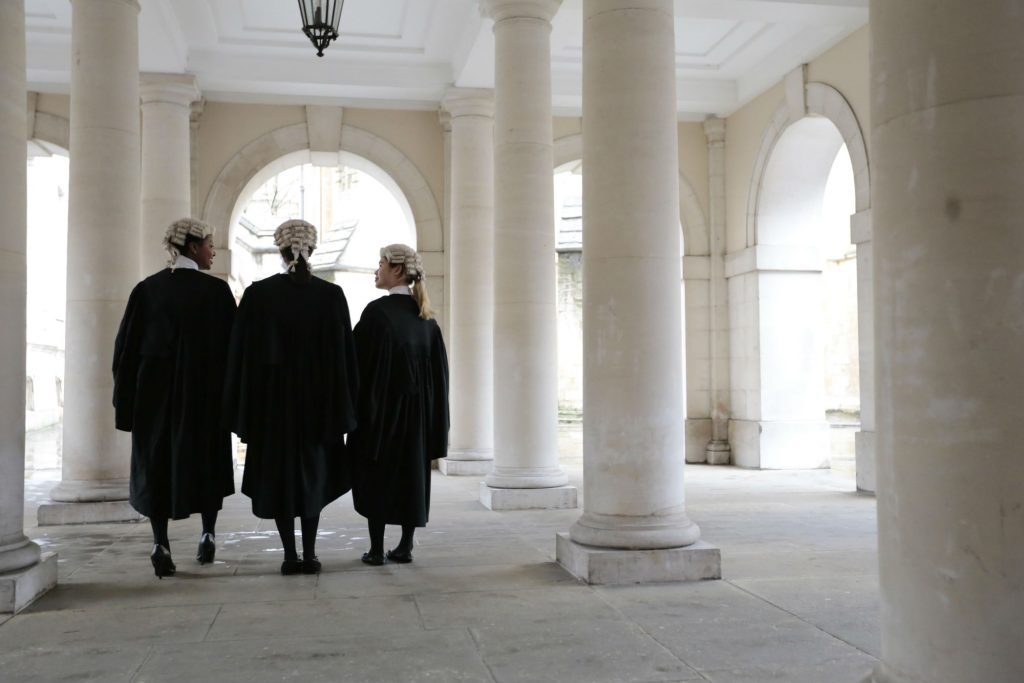QUESTIONS in LAW
Mark Neale, Director General of the Bar Standards Board, asks what it’s like being a barrister, and what is being done to encourage diversity and inclusion

I guess you’re reading this article because you’re wondering what a career as a barrister might be like.
Strangely enough, I have spent much of this year wondering the same thing. I only took over as the regulator of barristers in February. I’m not a barrister myself. So I’ve been learning about the profession by talking to barristers and pupils (trainee barristers) and by attending lots of professional events.
Here are some of the things that have struck me.
The first is that barristers care a lot about the independence, diversity and quality of their own profession. Most barristers work for themselves and so can’t rely on an employer to look after their training and development.
Instead, many barristers – including very senior ones – help support newcomers to the profession. Some act as pupil supervisors who directly oversee the work of trainee barristers who have joined their chambers (which is what barristers call their offices). Others give up time to train young barristers in advocacy and other professional skills.
So, if you become a barrister, you will have lots of personal support from other barristers who have been there and done that. You will not be on your own.
Another thing you will find is that insight is essential to a barrister’s success. You are there to advise and represent your clients and, if necessary, to advocate their cases in Court. So whether your client is a vulnerable person in a criminal or a family case or a company protecting its commercial interests, you have to be able to understand your client’s objectives and talk to them on their terms, not yours.
It’s very important that all consumers – whether people or businesses – have access to justice on equal terms. As a barrister, you will play an important role in making good on that principle.
You will find too that the work is very varied and challenging. Whatever branch of law you specialise in, no two cases are the same. You will have to work out what the key issues are in each case and how those issues relate to the law. You will have to explain to your clients what the prospects are for their cases. You will sometimes have to advocate your clients’ cases in Court.
You won’t necessarily be working on your own though. In many big cases, barristers work together as part of a team to analyse and advocate their clients’ cases. So teamwork is just as important as individual self-discipline.
And those teams – and your fellow barristers – will be diverse. They will come from all kinds of backgrounds. Nearly 40% of barristers are women. Around 14% of barristers are from Black, Asian and minority ethnic backgrounds – in line with the representation in society as a whole. 6% of barristers have a disability.
Now, I’m not going to tell you that we have yet achieved racial or gender equality among barristers. There are still inequalities in the way barristers are recruited and progress. You can read about the continuing challenges in the reports my organisation, the Bar Standards Board, has published on the training and progression of barristers.
But I am going to tell you that it is critical that barristers are a reflection of the society they serve and that we, as the regulator, working with the profession itself, are determined to tackle discrimination and to ensure equality. That’s why we published an anti-racist statement in November setting out what we expect all chambers to do to support equality. That includes auditing their recruitment practices and the way work is shared out. It includes taking positive action to tackle discrimination. And it includes providing anti-racist training for all barristers and staff. Just in case you’re wondering, we’re also doing all these things at the Bar Standards Board itself

So I hope you will pursue your interest in a career as a barrister and, perhaps, be inspired by some of the case studies of successful barristers who have taken this path before you. Here are a few examples:
LESLIE THOMAS QC
(GARDEN COURT CHAMBERS)
“If you are a person of colour, you may not think that becoming a barrister is for you. There are no two ways about it, the Bar has traditionally been a predominantly white, privately educated and middle-class profession, but it is a profession that is changing and one that I would encourage you to look at and consider entering into seriously. You are needed.
The profession needs diversity. Lots of it. My story: I am a black man of African-Caribbean heritage, state educated, working class roots and First Generation University in my family. But all of these factors I have turned not into obstacles holding me back but positive traits as to why a profession like the Bar needed me, and people like me. The rule of law and practice of law affects us all, regardless of where we come from or what we look like.
We all have a right to shape our destiny. As the law is a powerful tool for change, my personal philosophy is therefore why not use it for an instrument of good.
In the 30 years I have been practising at the Bar, although at times I have encountered discrimination, I can honestly say the people who have been greatly appreciative of the work I have done have been my clients regardless of what they look, like their social status, gender, sexuality, religion or race. When they put their trust in me what they want is someone who is prepared to go that extra mile and fight their corner. That is what I give them.
The rewards have been amazing. I’m not talking about the financial rewards in being a barrister, but the job satisfaction in knowing that you can really make a difference and be a force for good in other people’s lives. I doubt there are many other professions that can give the intellectual challenge, variety and personal satisfaction that you get doing this job. A life at the Bar has told me that being a member of a particular race or being a certain colour are not job requirements, rather being disciplined, tenacious, hardworking, determined with integrity and a large dash of creativity are the qualities you need to succeed.”
RAGGI KOTAK
(ONE PUMP COURT)
“I’m a queer South Asian woman, who grew up in London. I’ve been an immigration barrister now for approximately twenty years. I feel very fortunate. It’s a great job. I get to work with asylum seekers, which is such a pleasure, and bring huge change to their lives.
It is hard work, particularly in the early days. You have to really want to be a barrister to be successful at it. You have to be willing to show up and do the work.
I came to the Bar a little bit late, from a non-traditional route. I left school without many qualifications. Basically, I grew up around a lot of violence and wasn’t really able to concentrate on studying. I went to do an Access Course when I was 21. Which gave me access to university.
I initially studied Business Studies. I then did a one-year conversion course onto law. After this, I had to do a one-year Bar Vocational Course to become a barrister.
There are a growing number of barristers from diverse backgrounds. Being a barrister is something that everyone can do. Diversity brings different experiences and resilience, which can give us an edge.
We need more diversity in law. If being a barrister is something that really appeals to you. Then I say go for it. It really is an awesome career. It really is a career that is available to us all.”
SARA IBRAHIM
(3 HARE COURT)
“Becoming a barrister was a path I gravitated towards at University. It offered the promise of being intellectually challenging, whilst at the same time being able to help people solve their real life problems. The Bar gives its members the privilege of advocating for clients who are facing a crisis, such as loss of their job or helping a business recover money owed to them that they need to survive. For those who work hard, you can make a meaningful difference to the lives of those you represent. It is a career where you succeed or fail on your own merits and that is incredibly attractive, if sometimes testing.
Great strides are being made to promote better equality and diversity at the Bar. Ultimately the Bar wants the most talented recruits and that means encouraging aspirant barristers from all backgrounds. Most importantly, students from BAME backgrounds entering the profession enrich it with their unique perspectives and life experiences.
I would want all BAME students to view any differences as a potential enhancement to what they can offer rather than a disadvantage. This is not to say that greater progress cannot be made. However, 2020 has proven a seminal year with the Black Lives Matter movement encouraging the Bar to think deeply about anti-black racism and racism more generally that is faced by BAME members. Like all other candidates, BAME students who want to be barristers need to be proactive, willing to listen to feedback and dedicated to advancing their client’s case. The spotlight is now on ensuring that students can focus on these matters without being hobbled by concerns about racism or being BAME.
What is heartening is the increase of opportunities for BAME barristers in the profession. For the justice system to continue to thrive, we need to ensure BAME students can become barristers and to have successful practices. After 14 years at the Bar, I can say I am proud to be a BAME barrister.”
******************************************
You can find information about the path to becoming a barrister at www.barstandardsboard.org.uk. You will have to have a law degree or a degree in another subject and to have achieved at least a II.2 and then undergo a law conversion course. You will then have to undertake a year of professional training. And you will then have to find chambers in which to undertake your work experience or pupillage. The competition is tough, so not everyone succeeds.
But if you do succeed you will find yourself serving the rule of law and the public in a diverse and independent profession where understanding your client and teamwork count for as much as brainwork.
